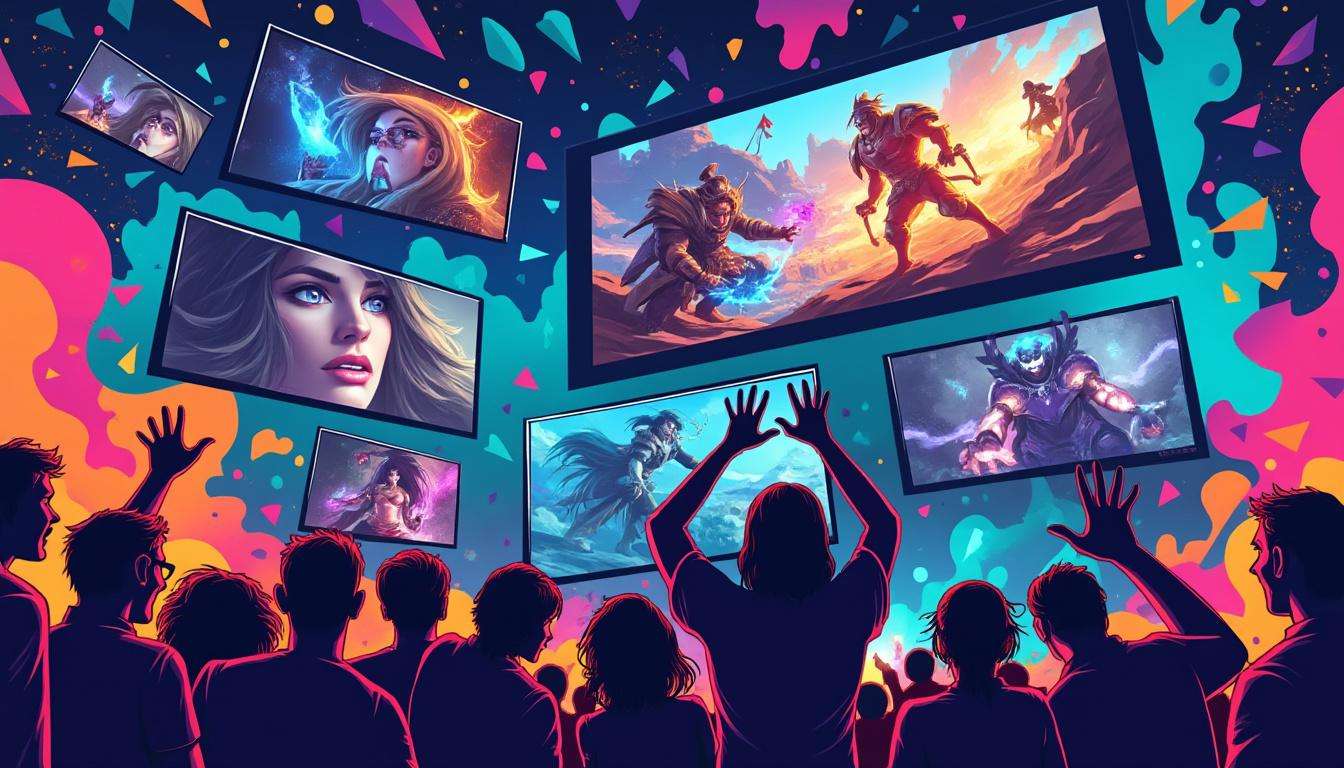Riot Games faces sharp criticism after posting an AI-generated trailer for League of Legends: Wild Rift’s third anniversary on its Chinese Weibo page. The video sparked fan outrage due to its poor animation quality, off-brand visuals, and AI artifacts before being removed amid growing backlash from the community. This incident raises fresh concerns about the use of AI technology in gaming content creation, especially by industry giants like Riot, Activision, and Electronic Arts, as fans demand respect for traditional animation craftsmanship in blockbuster titles.
Riot Games Sparks Backlash with AI Wild Rift Trailer
The recently uploaded trailer celebrating Wild Rift’s third anniversary provoked widespread negative reactions online. The video, posted on Wild Rift China’s official Weibo account, quickly reached Western audiences thanks to Reddit user /u/Winter_underdog. Fans immediately identified telltale signs of generative AI use, such as smeared text and inconsistent art styles.
- AI artifacts: Faulty text spelling “Anniversary” and blurred elements dimmed the viewing experience.
- Visual inconsistencies: Audience members appeared rendered in styles distinct from each other and from League’s heroes.
- Character inaccuracies: Jinx was seen wielding unfamiliar weapons, deviating from her iconic minigun and rocket launcher.
Players branded the trailer as not only “disrespectful” but an insult to the animation community that has long supported the game’s visual identity.
Fans Reject AI Use Amid Profitable League of Legends Franchise
Loyal fans questioned why Riot Games would resort to AI-generated content when both League of Legends and Wild Rift consistently dominate global esports and mobile game charts. The backlash highlighted deep concerns:
- Respect for animators: Critics argued massive studios like Riot should honor traditional animation craftsmanship rather than rely on AI shortcuts.
- Impact on quality: Fans felt the AI trailer hurt the reputation of Wild Rift, a flagship product competing against giants like Epic Games’ Fortnite and Valve Corporation’s multiplayer titles.
- Disrespect to audience: Many voiced that deploying AI in such a celebrated campaign disrespected the devoted community built over years.
One user harshly advised, “Why f**k around with AI when you have proper animators?” This sentiment echoed across social platforms, including Discord channels and subreddits dedicated to League of Legends.
Community Debate: Is AI Content Appropriate for Flagship Game Campaigns?
The Wild Rift incident renewed the industry-wide debate over artificial intelligence in game asset creation. While AI tools are growing in adoption among developers including Ubisoft and Blizzard Entertainment, their use in high-profile promotional videos remains contentious.
- Authenticity concerns: Fans worry AI-generated visuals lack the soul and nuance that traditional art provides.
- Economic considerations: Some speculate cost-cutting motives behind AI usage in expensive brands like Riot’s.
- Creative future: The episode questions how industry leaders will balance emerging tech with player expectations moving forward.
Despite the fallout, the video remains accessible via Reddit archives, serving as a case study in potential pitfalls of mixing AI with cherished intellectual properties.
What This Means for League of Legends and the Gaming Industry
The backlash around the Wild Rift AI trailer illustrates a growing tension in 2025’s gaming landscape between innovation and tradition. In a market with competitors like Epic Games, Activision, and Electronic Arts pushing creative boundaries, Riot’s challenge is to uphold quality while exploring new content creation methods.
- Fan trust: Maintaining player goodwill requires careful integration of AI without degrading beloved franchises.
- Industry standards: Studios must establish clear guidelines for AI involvement in public-facing content.
- Creative collaboration: Combining human artistry with AI tools offers a middle path respected by both creators and fans.
This episode serves as a reminder that while technology evolves, player respect remains paramount in esports and game marketing strategies.

